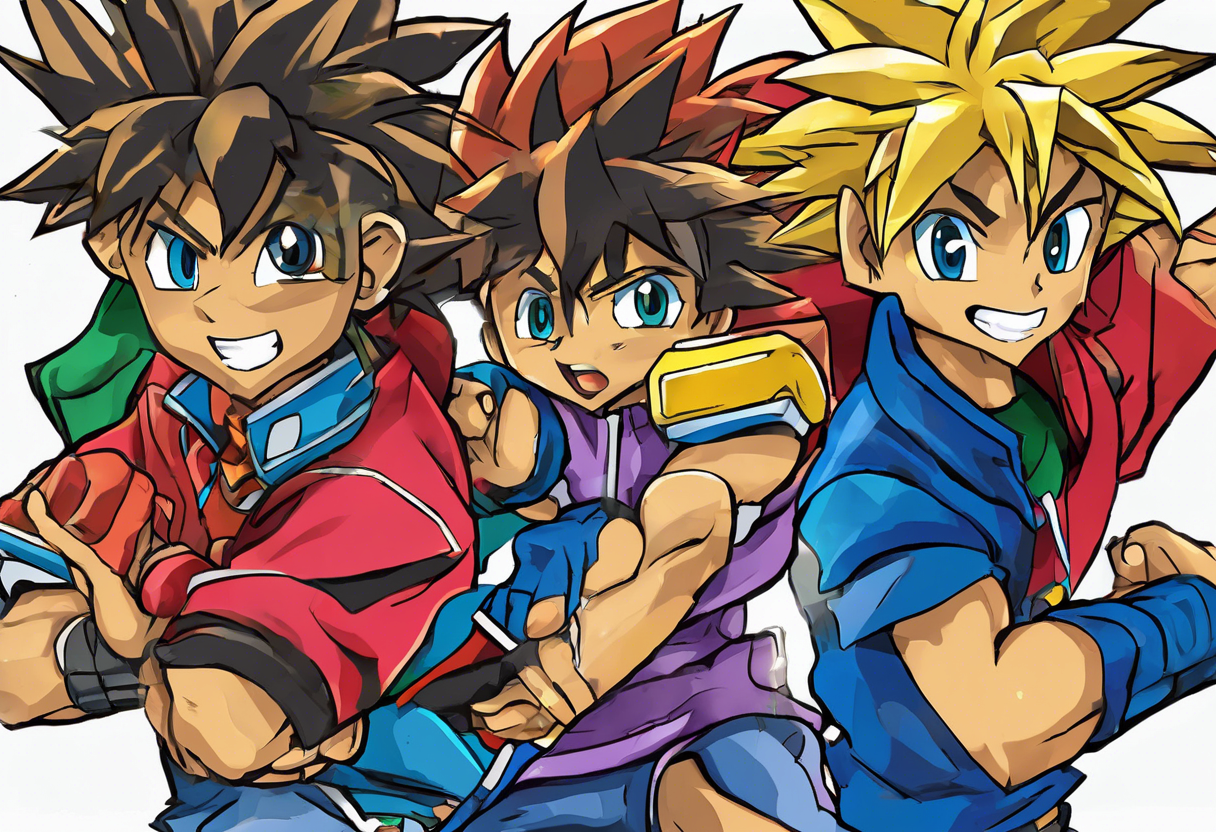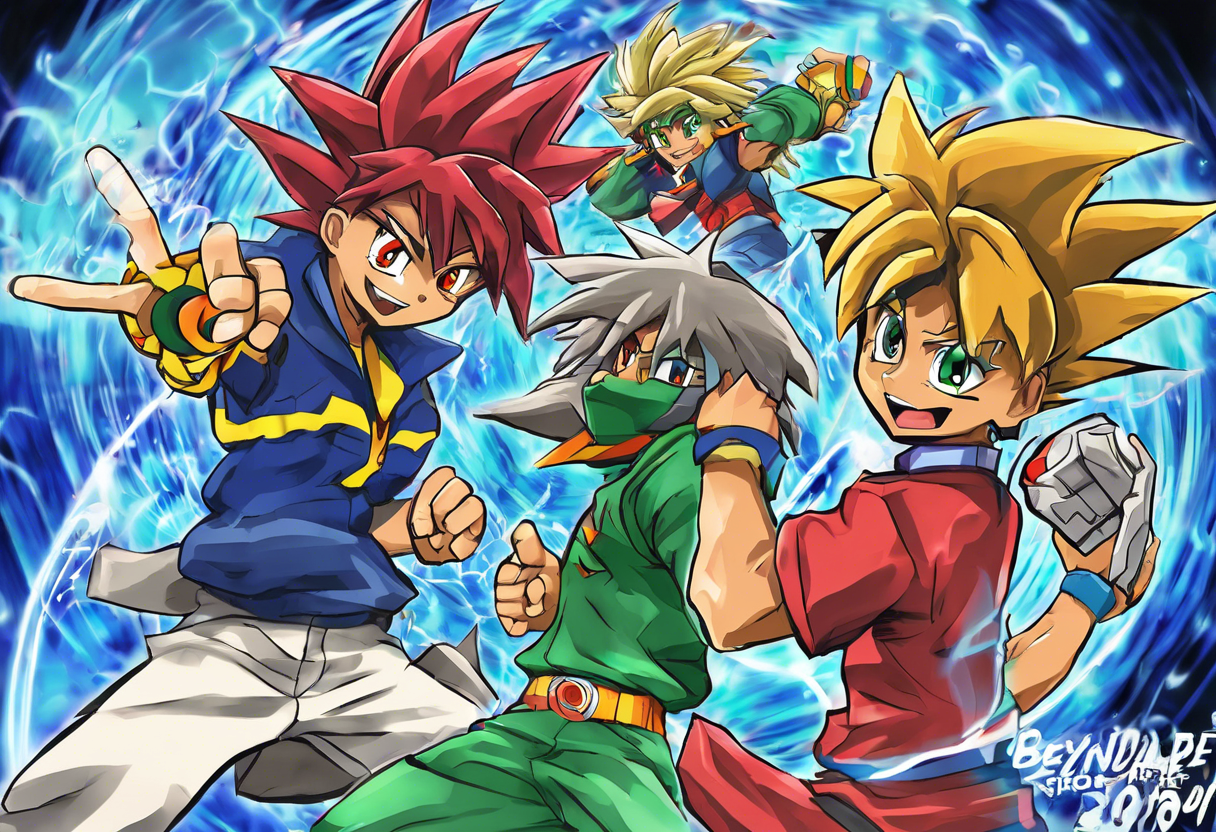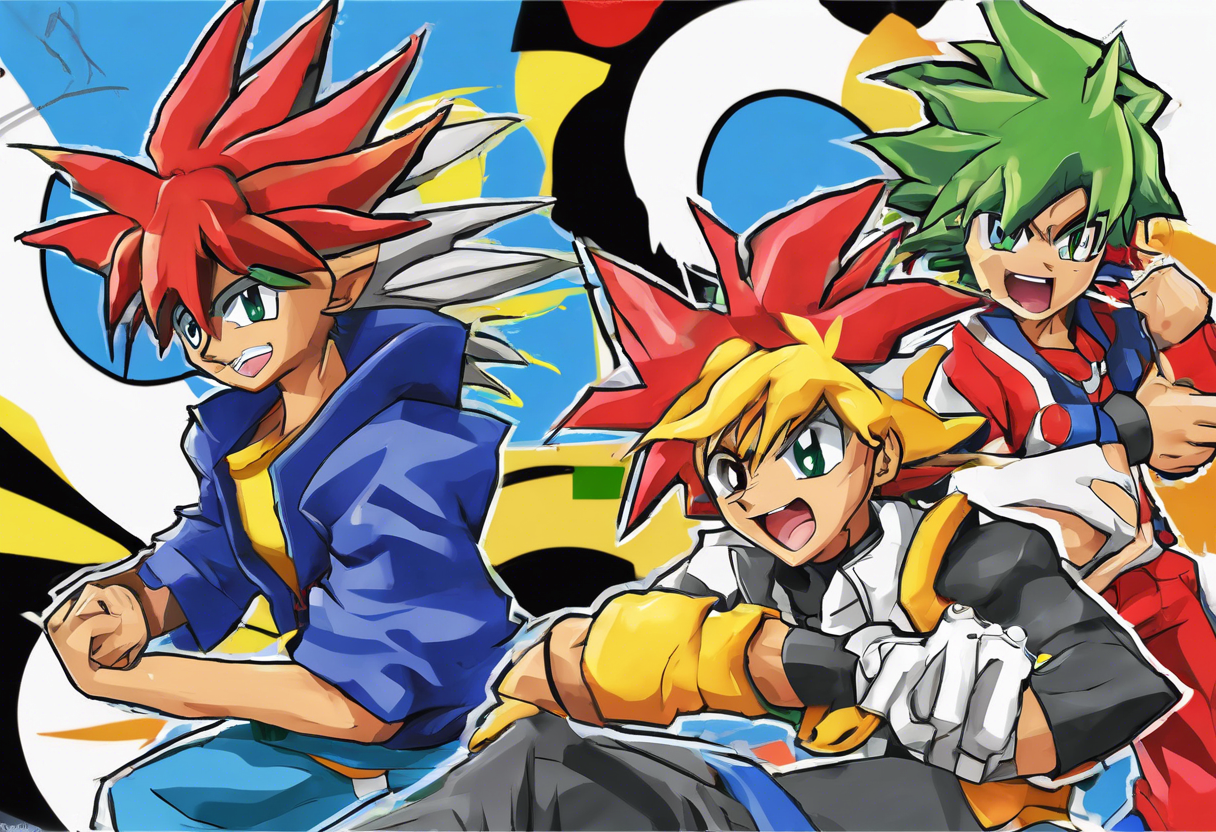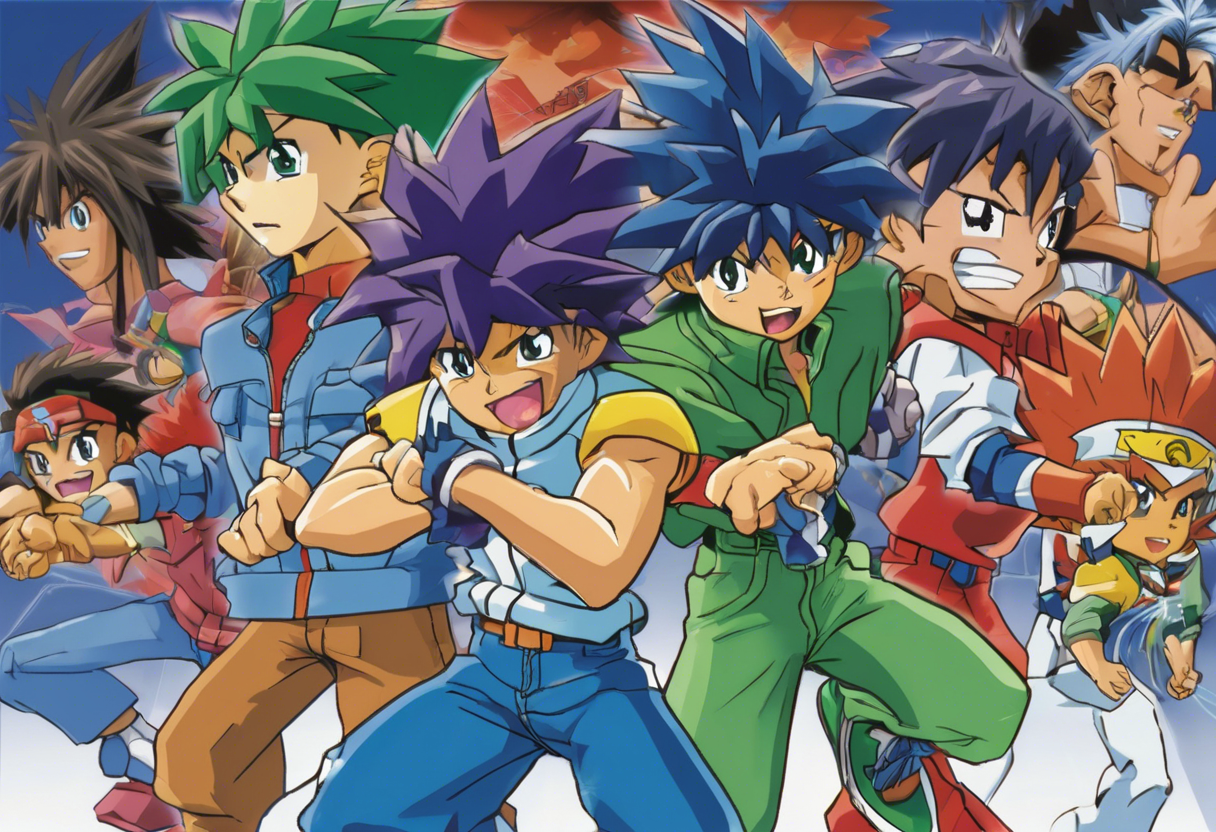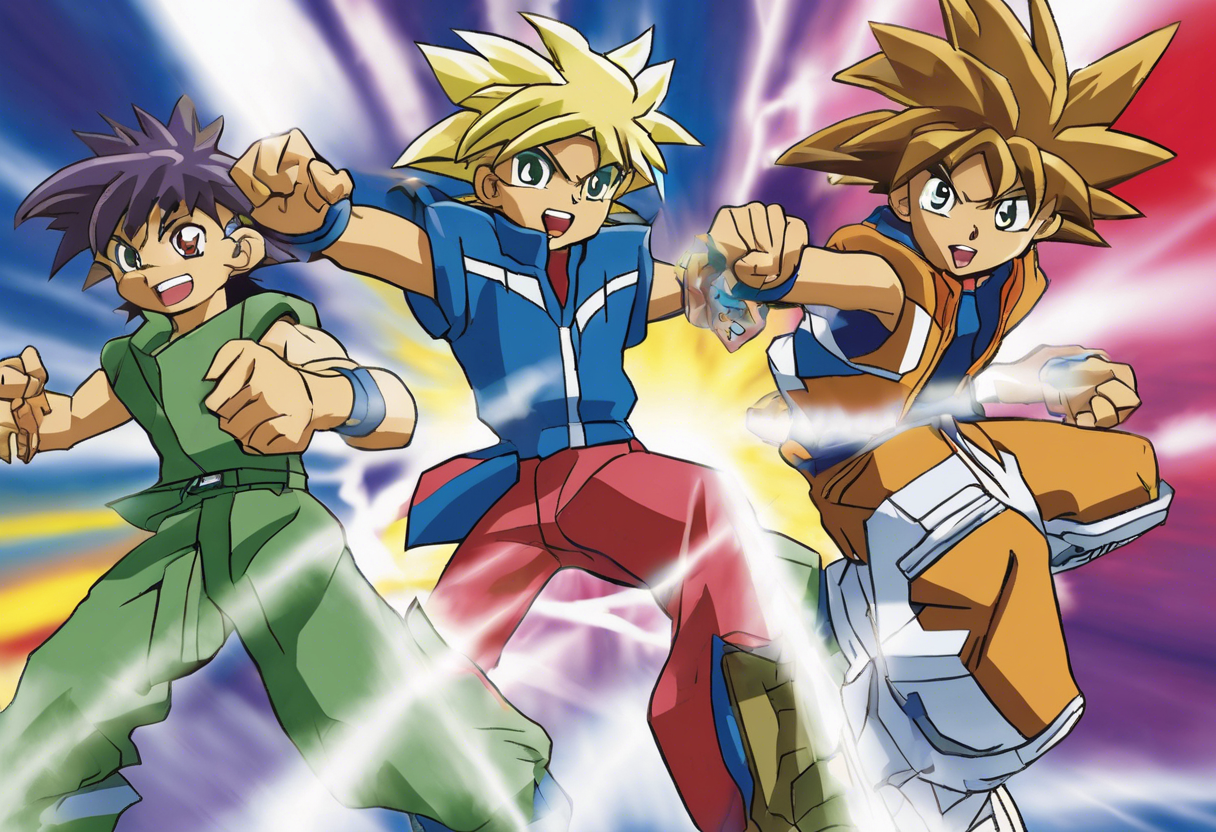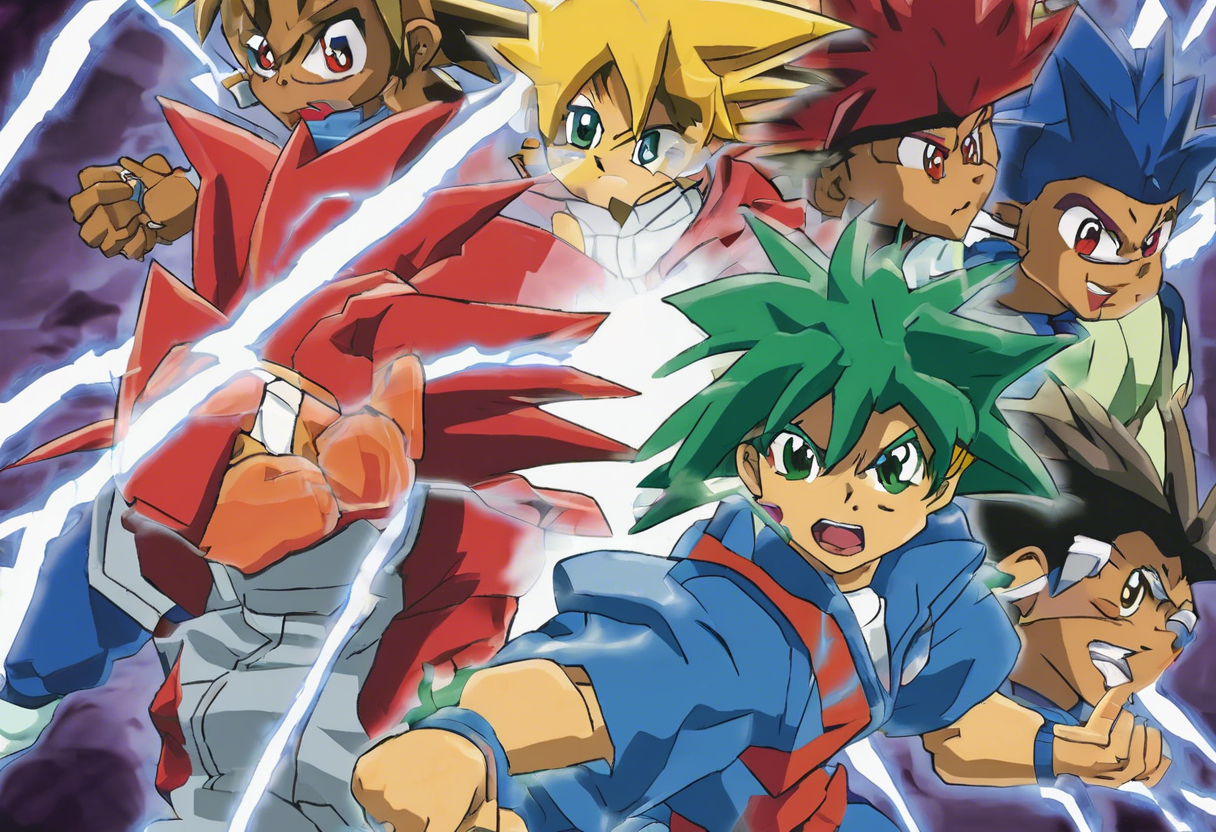Contents
Beyblade (2001) – Episode 27: Friendly Rivals
Introduction
"Beyblade," the Japanese anime series that premiered on January 8, 2001, on TV Tokyo, is based on the manga of the same name by Takao Aoki. The first season, known as "Bakuten Shoot Beyblade" in Japan, follows the adventures of a group of young Beybladers as they compete in high-stakes tournaments and battle against rival teams. Episode 27, titled "Friendly Rivals," is a pivotal episode that delves into the relationships and rivalries within the main characters.
The production of "Beyblade" involved several key creative figures, including director Toshifumi Kawase and writer Atsushi Maekawa. The series was produced by Madhouse and Synergy SP, with music composed by Yoshihisa Hirano. "Friendly Rivals" was initially released in Japan in 2001 and later in other countries, including an English broadcast starting in 2002[4][2].
This episode stands out within the series for its focus on character development and the emotional depth it adds to the storyline, setting it apart from other episodes that are more action-oriented.
Plot Summary
In "Friendly Rivals," the Bladebreakers, consisting of Tyson Granger (Takao Kinomiya), Kai Hiwatari, Max Tate (Max Mizuhura), and Ray Kon (Rei Kon), are fresh from their victory in the Asian Beyblade Championship. The episode begins with Tyson returning home to a hero’s welcome, with his face plastered on the front page of the news. However, this newfound fame goes to his head, causing him to become arrogant and distant from his friends.
Meanwhile, at a local playground, a young boy named Nicky is being bullied by another kid named Riley, who destroys Nicky’s Beyblade in the process. Witnessing this, Tyson decides to help Nicky by rebuilding his Beyblade with the assistance of Max, Kyojyu (the team’s technical expert), and Dizzi. This act of kindness not only helps Nicky but also serves as a reminder to Tyson of the true spirit of Beyblading.
As the story unfolds, the Bladebreakers prepare for their next challenge, which involves facing off against other skilled Beybladers. The episode highlights the friendly rivalries within the team, particularly between Tyson and Kai. Kai, who has always been a bit of a loner, begins to question his place within the team and his own motivations for competing.
The central conflict of the episode revolves around a series of matches where the Bladebreakers face off against other teams. One of the key matches is between Tyson and a new opponent, who pushes Tyson to his limits. This match serves as a catalyst for Tyson to reflect on his recent behavior and the importance of teamwork and friendship.
Throughout the episode, the characters’ bit-beasts play a significant role. These bit-beasts are powerful, spiritual entities that reside within the Beyblades and enhance their performance. The episode showcases how the bond between the Beybladers and their bit-beasts is crucial for their success.
The setting of the episode shifts between the Bladebreakers’ hometown and various Beyblade arenas, highlighting the diverse environments in which the characters compete. The narrative arc of the episode is characterized by Tyson’s journey from arrogance to humility, and the strengthening of the bonds between the Bladebreakers.
As the episode concludes, the Bladebreakers emerge stronger and more united than ever, ready to face the challenges that lie ahead. The final scenes show Tyson and his friends reflecting on what they have learned, emphasizing the importance of friendship and fair play in the world of Beyblading.
Themes and Symbolism
" Friendly Rivals" explores several central themes that are pivotal to the overall narrative of "Beyblade." One of the most prominent themes is the importance of friendship and teamwork. The episode highlights how the Bladebreakers’ unity and support for each other are essential for their success. This theme is symbolized through the characters’ interactions and the way they work together to overcome challenges.
Another significant theme is the balance between ambition and humility. Tyson’s initial arrogance and subsequent realization of his mistakes serve as a cautionary tale about the dangers of letting fame and success go to one’s head. This theme is symbolized through Tyson’s character development, as he transitions from a self-centered individual to a more humble and team-oriented player.
The episode also delves into the theme of rivalry and competition. The friendly rivalries within the team, particularly between Tyson and Kai, are portrayed as healthy and motivating factors that drive the characters to improve. This theme is symbolized through the intense and competitive matches that the characters engage in.
The bit-beasts in the series serve as symbolic representations of the characters’ inner strengths and weaknesses. The bond between the Beybladers and their bit-beasts symbolizes the connection between the physical and spiritual aspects of their personalities.
Cultural Impact
" Friendly Rivals" and the broader "Beyblade" series have had a significant cultural impact since their release. The series was widely popular among children and teenagers, inspiring a global phenomenon with its unique blend of action, adventure, and sports. The episode’s focus on friendship, teamwork, and fair play resonated with audiences, making it a beloved part of many viewers’ childhoods.
The series also spawned a successful toy line, with Beyblades becoming a staple in many toy collections. The cultural impact of "Beyblade" extends beyond the anime itself, influencing other media such as video games, manga, and even real-life spinning top competitions.
Critical Reception
Upon its release, "Beyblade" and episodes like "Friendly Rivals" received generally positive reviews from both critics and audiences. Critics praised the series for its engaging storyline, well-developed characters, and the unique concept of Beyblading. The episode’s focus on character development and emotional depth was particularly praised for adding a layer of complexity to the series.
However, some critics noted that the series could be formulaic at times, with repetitive match sequences. Despite this, the overall reception was positive, with many considering "Beyblade" one of the standout anime series of the early 2000s.
Legacy
" Friendly Rivals" and the "Beyblade" series continue to have an enduring legacy in the world of anime and beyond. The series has inspired numerous sequels, spin-offs, and adaptations, ensuring its continued relevance in popular culture.
The episode’s themes of friendship, teamwork, and fair play continue to resonate with audiences, making it a timeless classic within the anime genre. The influence of "Beyblade" can be seen in other anime series that have followed in its footsteps, incorporating similar elements of competition and teamwork.
In conclusion, "Friendly Rivals" is a pivotal episode in the "Beyblade" series, offering a rich narrative that explores key themes and character developments. Its impact on popular culture and its enduring legacy make it a significant part of anime history.

